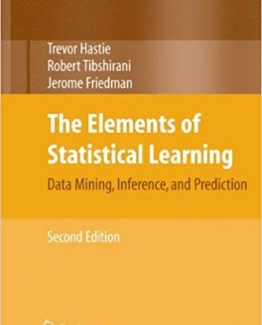Communications Toolkit 5th Edition by Jane Grellier, ISBN-13: 978-0170452052
[PDF eBook eTextbook]
- Publisher: Cengage Australia; 5th edition (October 12, 2021)
- Language: English
- 410 pages
- ISBN-10: 0170452050
- ISBN-13: 978-0170452052
The Communications Toolkit contains practical advice, tips and strategies to enable you to develop the communication skills you need to be successful in your studies. This resource helps you make a successful transition to tertiary studies, develop effective research skills for your discipline, approach academic writing with confidence, refine your writing skills and enhance your face-to-face communication experience. The Communications Toolkit provides information on academic integrity and referencing, taking into account the changing nature of university communication including recent text-types such as blogs, twitter, digital articles, online research questionnaires, presentation formats and Turn-it-in. Additional examples of online students’ communication work and additional coverage of the communication challenges students face when going to university via an online channel are included.
Table of Contents:
FOREWORD VIII
ABOUT THE AUTHORS XII
ACKNOWLEDGEMENTS XIII
BEFORE YOU READ THIS BOOK XVI
GUIDE TO THE TEXT XVIII
GUIDE TO THE ONLINE RESOURCES XXII
PART ONE TRANSITIONING TO TERTIARY STUDIES 1
Chapter 1 Making the transition 3
Your first months as a tertiary student 4
Respecting diversity 12
Mature-aged students 13
English-language proficiency 14
New international students 14
Communicating with tertiary staff 14
Challenges you might face 17
Chapter 2 Online learning 21
Being an online student 22
Forms of online study 24
Common myths and misconceptions 25
Your tools for success in online study 28
PART TWO RESEARCH SKILLS 38
Chapter 3 Identifying and evaluating appropriate resources 39
Choosing a topic 40
Before you start researching 40
Search tools 40
A word on primary research 41
Secondary research 43
Why evaluate a text? 47
Relevance 47
Reliability 47
Additional hints for evaluating a webpage 53
New types of text 54
Chapter 4 Reading academic texts, both written
and recorded 58
Reading scholarly texts 59
Viewing audio-visual scholarly texts 68
Making notes from your reading or viewing 71
Chapter 5 Referencing and academic integrity 77
Getting started on referencing 78
Why reference? 78
How to reference 80
Paraphrasing and quoting 88
Academic honesty 99
PART THREE ACADEMIC WRITING 110
Chapter 6 Approaches to writing 111
Assumptions and biases 112
Improving your writing 113
The writing process 118
The discourse of your discipline 133
Chapter 7 Reflective writing 138
Thinking at university 139
What is reflective thinking? 139
How can you learn to write reflectively? 141
Reflection for first-year students 146
Over to you … applying what you have learned 153
Final words from a student 157
Chapter 8 Report writing 161
What is a report? 162
Analytical report types 162
Compiling the report 165
Researching the report 180
Writing the report 180
Chapter 9 Academic essay writing 188
The academic essay 189
Early research 190
Developing your argument 192
Writing your essay 197
Editing and proofreading your essay 206
Chapter 10 Some other tertiary genres 209
Introduction to tertiary genres 210
The summary 210
The annotated bibliography 213
The case study 218
Other common genres 221
Social media 223
PART FOUR REFINING YOUR WRITING 228
Chapter 11 Two principles of good academic writing 229
Principles of successful academic writing 230
Principle 1: The KISS principle – keep it simple, students! 230
Principle 2: Make it formal, where appropriate 243
Chapter 12 Grammar, punctuation and spelling 254
The writing process 255
Why worry about grammar? 255
Grammar 257
Punctuation 269
Spelling 275
Common difficulties for students for whom English is an
additional language 281
PART FIVE FACE-TO-FACE COMMUNICATION 287
Chapter 13 Interpersonal skills 288
Active listening 289
Feedback 293
Small talk 295
Working with people with a disability 296
Negotiation 297
Successful meetings 301
Chapter 14 Intercultural communication 307
Key concepts 308
The tertiary environment 310
Inclusive communication 314
A final word on respect 320
Chapter 15 Teamwork 324
Teams and groups 325
Research into teamwork 325
Friendship teams and organised teams 325
Benefits of working in teams 326
Conflicts in teams 327
Team roles 331
Successful teams 333
Working in teams 334
Chapter 16 Presentations 338
Presenting in tertiary environments 339
Content 340
Structure 341
Present with confidence 343
Audience interaction 343
Non-verbal language 346
Presentation aids 349
Team presentations 356
Chapter 17 How far you’ve come! 365
Where to from here? 366
Reflective and critical thinking 366
Time management 367
Engagement 368
Confidence 369
Two final notes from us 370
And final words from three students 371
INDEX 373
What makes us different?
• Instant Download
• Always Competitive Pricing
• 100% Privacy
• FREE Sample Available
• 24-7 LIVE Customer Support






Reviews
There are no reviews yet.